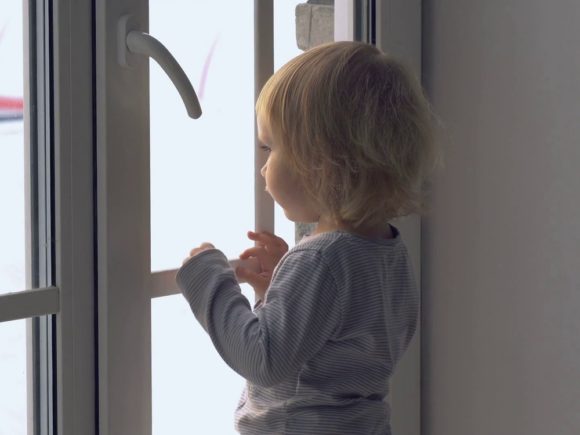For people who are not involved in law, the question of discharging someone from the apartment becomes a serious headache. Residents are divided into several categories. Sometimes it is impossible to write out a person without a voluntary decision. Even if he does not have the right to property, registration can be canceled at the address only through the court. The process can be lengthy, therefore it is better to issue a deregistration without the involvement of procedural bodies.
Content
How to write out "nowhere" at will

When applying for a voluntary statement, authorities request information about the new place of residence and future address of registration. If the reason was a relocation to another region where you have your own real estate, you must confirm the rights to it by providing documents on the purchase of an apartment or house. There are times when a person does not know where he will move after discharge. Then it is better to honestly notify the MFC of the absence of plans, otherwise there will be problems in the paperwork.
What documents are needed
Deregistration is an important issue for property owners and tenants. The list of documents required for discharge varies among adult apartment owners, minors and convicts. A person is obliged to transfer to the municipal authorities the proposed registration address after canceling the past. In some cases, this information is not needed. It is not necessary to provide data on the future place of registration; there is a tenant about to check out because of:
- moving to another country for permanent residence;
- selling the apartment by the owner, with whom there is no family relationship;
- purchase of premises with the right to register a year later, when selling their own housing;
- Alienation of an apartment as payment of debt to creditors.
The discharge procedure depends on the reason why the person is going to do this. To cancel the registration, you must contact the nearest MFC branch. In all cases, except those listed, it is necessary to provide the authorities with information about future registration. Otherwise, the statement will be impossible. In rare cases, the owner of the apartment is required to provide temporary housing to the person whose registration he cancels. This rule does not apply if the premises became foreign property due to sale, transfer of inheritance or donation.
If an adult is discharged from the room with a child, it is necessary to notify the guardianship authorities. Otherwise, the guardian will receive claims from the government. The consequences are varied: from the refusal to cancel the registration to the deprivation of parental rights.
How to leave the apartment

Most often, canceling registration is simple. Sometimes rare cases cause difficulties caused by the specifics of individual cases. To leave the apartment you need:
- Fill out an application in form No. 6 at the nearest MFC office. The document can be downloaded in advance through the website of the State Service. When applying, you need to have a passport with you.MFC employees submit it with the FMS application form on their own.
- If you already have an address for future registration, you must specify it in the application. This is not recorded in the passport, therefore, with the actual processing of documents in the future, it will be possible to choose any other place of permanent residence.
- Documents have the right to submit a third party, it may not be a relative of a person who is discharged from the apartment. To do this, you need to draw up a power of attorney in a notary's office.
- After submitting all the papers, you must wait 3 days until the application is considered. This is the period established by law.
- If everything is completed correctly and the MFC approves the request, a passport is stamped in the passport. On hand issue a document of departure, which will be required when registering at a new residence.
Reasons and grounds

If a person does not want to voluntarily be discharged from the apartment, the matter has to be resolved through litigation. This is possible if the tenant does not have ownership of the premises. In this case, the owner sends a claim with all the documents. The application must describe the arguments in favor of evicting the person, otherwise the court may decide in favor of the tenant.
A cancellation procedure is required if:
- the tenant violated the lease and accommodation (if there is evidence);
- demolition of the house and unsuitability of the premises for living;
- spouses get divorced (the process will take place on different conditions for those who received an apartment before marriage, and for those who purchased housing later);
- there are no legal rights to registration and accommodation;
- a person does not appear at the place of registration for a long period;
- unwillingness of the owner to side with the tenant;
- the tenant's refusal to pay utility bills;
- lease term has expired.
If the apartment has been privatized with the consent of the residents registered in it, without good reason they cannot be evicted. All who participated in the procedure are considered full owners. Forcing such a tenant to evict does not work even through a court of law.
Can they get out of the apartment without consent to nowhere

If a person refuses to cancel the registration on their own, the owner of the apartment can do this only through a court. It is not possible to register a tenant if this applies to persons of minor age and people serving a term in prison or sent there. Convicts may be deprived of their right to premises only if their relatives refuse to pay utility bills. Their extract is permissible if a person submits an application of his own free will. You can not deregister the former spouse from the apartment without consent if it was acquired after marriage.
Extract from municipal housing
This type of real estate is directly owned by the state, so cancellation of someone's registration is possible only through the court. To do this, you must file a claim for violation of one of the paragraphs of Article ZhK RF №83 “Termination and termination of the contract of social tenancy of a dwelling.” These include:
- non-payment of utility bills for six months, with the consent of the tenant;
- violation of public silence, fights and other behavior that interferes with the normal living of neighbors;
- the use of housing for personal interests, for example, the conversion of an apartment into a commercial building.
In case of systematic non-payment of utility bills, the owner of the apartment must apply to the court, in this case, the state body. Outsiders can not affect the eviction of a person in any way, except for complaints about noise and other behavior that violates public order. Before filing a lawsuit, the municipality sends a notice stating the grounds for eviction. If the situation is not corrected, for example, bills still remain unpaid, the case will be referred to court. The owner of the apartment has the full right to evict nowhere whoever violated at least one paragraph of Article ZhK RF No. 83.
Extract from privatized housing

The easiest way is to cancel the registration of a person not of his will, if the reason was a divorce, and the apartment was owned by one of the spouses before the wedding. The landlord must file an application with the court for discharge. Neighbors in this case can affect eviction only by filing complaints of public order violations. According to the rules of the Housing Code of the Russian Federation, a spouse who is not the owner is required to vacate the area, even if there is no place for moving. The same applies to his relatives.
If the apartment was purchased after marriage, you cannot write the ex-spouse out of the apartment. An exception is a clause of a prenuptial agreement allowing the division of property and the complete cancellation of registration.
Unregistered from inherited or donated housing
The new owner of the apartment has the right to decide who is allowed to stay in it. If the current residents are not satisfied with them, they can be discharged through the court. It is enough to apply for cancellation of registration, appealing the Civil Code. It describes in detail the transfer of real estate for free or as an inheritance. It also states that the new owner has all the rights and can decide who will be registered in his premises.
Difficulties arise if tenants participated in the privatization of the apartment. It is best to consult with a lawyer before filing a lawsuit. Before contacting the authorities, you need to make sure that the owner can financially maintain the new premises. If he is not able to make utility bills, municipal authorities reserve the right to challenge the will and refuse to extract people living in the apartment.
How to write out convicted tenants from an apartment
Previously, any person who was absent from the premises for more than six months could lose registration. Later, such a situation was considered dishonest in relation to the convicts, because after punishment they could be left without housing. In 1995, the Constitution of the Russian Federation was amended. Now, the absence of an apartment due to deprivation is free is not considered a basis for deprivation of registration. Under article 71 of the LC RF, the tenant does not lose the right to use the premises due to the prison term.
The easiest way to write a prisoner out of the apartment is to agree with him. This is due to utility bills. In the period of serving a sentence by a convicted person, obligations to municipal services pass to the shoulders of his relatives. If they do not intend to pay bills, you need to issue an extract on deregistration. To do this, you need a statement drawn up by the convict and a copy of his passport, with the seal of the correctional institution in which the person is located. This is considered an analogy of a power of attorney for persons serving a prison term.
If the convicted person refuses to be discharged from the apartment, this can be done through a court. The cancellation of registration is regulated by the law of the Russian Federation No. 5242-1. It is impossible to remove a tenant serving a term without a decision of a law enforcement agency. The procedure for discharge from a municipal and privatized apartment is different. It is also important to play whether the convicted person is the owner. When applying to the MFC, the applicant must have in his hands:
- passport of the owner of the apartment;
- copy of the sentence as a basis for de-registration;
- statement of the convicted person;
- statement of the owner of the housing;
- a copy of the prisoner's passport certified by the administration of the institution in which he is serving time.
Is it possible to write a minor child out of the apartment to nowhere

According to the legislation of the Russian Federation, children who are registered at only one address cannot be written out. An exception is cases when a parent deregisters itself with a minor child. Then he is obliged to provide the municipal authority with information about the future place of residence. You will also have to meet with the guardianship authorities, who must approve such a move.The best basis for discharge in this case would be the sale of an apartment against a new room, which is still under construction. At the time, while the parent with the child will be waiting, there should be a temporary residence. Otherwise, guardianship authorities may question parental rights. An extract is not possible without a written agreement.
You cannot write a child out of a privatized apartment. Cancellation of registration is possible only from municipal housing.
When a minor moves from one parent to another, it is necessary to make a request for a registration permit at a new address. In this case, both guardians must obtain the consent of each other, otherwise you will have to go to court to solve the problem. If it is not possible to bypass the authorities, the settlement of the issue is carried out according to the plan:
- Collection of documents.
- Drawing up an application.
- Payment of state duty.
- Drafting and filing a lawsuit.
- Participation in meetings and pending court decision.
- Interaction with bailiffs and the department of the Ministry of Internal Affairs dealing with migration issues for eviction.
- Check execution.
If a minor child is a homeowner

The owner of the apartment is not always the parent. In some cases, a minor acts in his role. Most often this happens when relatives die and the premises are inherited. If the child is the owner, you can only get him out of the apartment with the prior approval of the guardianship authorities. The institution does not always approve such applications. In case of refusal, parents or guardians can file a lawsuit, but this should be done, only parents consider the answer illegal.
To discharge a child from the apartment, it is necessary to provide the following documents to the guardianship authorities:
- passports of parents (or one if the second died or is not recorded in the documents);
- birth certificate of a child;
- application for deregistration;
- technical passport of the premises (from which the child is discharged and the place of the new registration address);
- documents confirming ownership.
Guardianship authorities consider the application up to 14 days, then respond with consent or refusal. In the second case, you will have to go to court for discharge. You can submit a second application if there may be an error in the preparation of the petition. When approval has been received and all necessary papers have been collected, they must be transferred to the nearest MFC office. In this case, the parent must write a statement if the child is under 14 years old, because it requires passport data. On average, FMS requests are reviewed within 3 days.
Guardianship authorities may not approve a move if the living conditions at the new address are worse than in the previous apartment. This applies not only to the size of the premises, but also to the infrastructure.
If the child is not the owner of the house
The approval of guardianship authorities is not required when a minor does not have rights to an apartment. In this case, an extract can be issued immediately through an appeal to the nearest MFC office. In the passport office you must bring:
- a statement written by the parent if the child is under 14 years old, and by the child himself if he is older;
- passport of a parent or guardian;
- birth certificate;
- technical passports of new housing;
- departure sheet.
Sometimes municipal authorities and individuals resort to forced discharge. This is true if the minor is not entitled to use the apartment. In this case, all issues are resolved through the guardianship authorities, which also participate in legal proceedings. An application for discharge must be submitted at the actual location of the defendant. If the child is over 10 years old, he also participates in meetings. Authorities take his opinion into account when making a decision. The court will refuse if:
- the child participated in the privatization of housing;
- the minor is the owner of the apartment;
- A statement of claim is made by a person interested in the premises in question.
Dates and penalties

Officially, municipal authorities consider applications within 3 business days, but in reality this period may increase by 2 times. Most often, the reason for the delay is the submission of the application at the place of registration. An extract may take even longer if cancellation of registration is not at the request of the tenant. Litigation can significantly delay the process. Also, delays are often caused by deregistration in one city and registration in another region.
According to the law, a delay in submitting documents for registration can cost a tenant from 3,000 to 5,000 rubles. The owner of the apartment may be fined from 5,000 to 7,000 rubles if unregistered people are in his premises for a long time. Legal entities will suffer more damage - from 300,000 to 800,000 rubles. For an extract from the apartment and late submission of documents, the person who submitted the application cannot receive fines.
Extract from the apartment is a serious legal issue. The complexity of the procedure depends on the status of the apartment and its residents. The deregistration from a privatized apartment can be much more complicated than from a municipal one, especially when it comes to a minor. It is also difficult to write against the will of the convicted person: without a court such a question cannot be resolved. The legislation of the Russian Federation clearly spells out all possible criteria for deregistration and exceptions that are relevant in the course of proceedings.





Alas, no comments yet. Be the first!